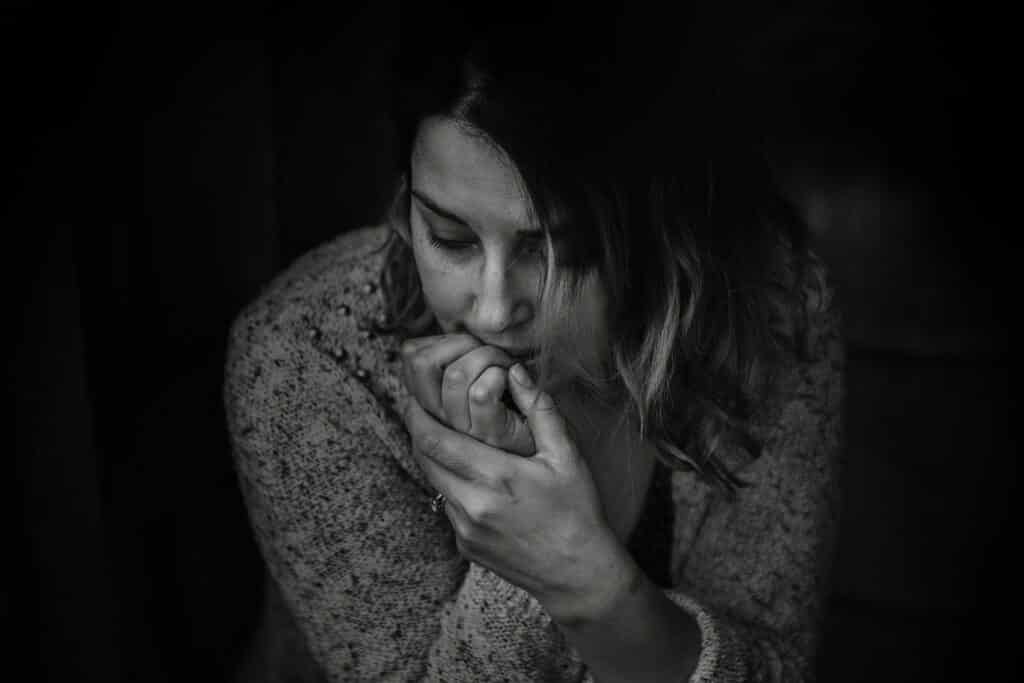If you often find yourself worrying about things for no apparent reason, you might have a mental health disorder known as GAD (generalized anxiety disorder).
The symptoms of GAD can make everyday life seem like a constant state of fear, worry, and catastrophe, but generalized anxiety disorder typically responds favorably to treatment.
Need help getting addiction treatment?
What is Generalized Anxiety Disorder?
According to ADAA (the Anxiety and Depression Association of America), 6.8 million adults in the United States are diagnosed with GAD in any year. This represents just over 3% of the population suffering with anxiety.
Unfortunately, less than half of these people seek any form of treatment for the symptoms of anxiety. In the case of GAD, failure to obtain treatment often involves the symptoms worsening over time.
GAD is a mental health condition characterized by persistent, excessive worry about a range of factors.
Some people with generalized anxiety disorder anticipate dread and disaster when the situation doesn’t actually warrant such drastic predictions. Others with GAD worry incessantly about health, finances, family, or work.
For those diagnosed with GAD, it can be challenging to control these worries. Oftentimes, these worries are disproportionate to actual events.
If you find it hard to control worry on most days for at least six months, and if you exhibit at least three of the symptoms outlined below, you may be diagnosed with generalized anxiety disorder.
What Causes Generalized Anxiety Disorder
Researchers are unsure of the exact cause of generalized anxiety disorder, but evidence suggests an interplay of environmental and genetic factors play a role.
These include:
- Genetic susceptibility
- Difference in brain function and chemistry
- Development
- Personality
- Trauma
- Adverse childhood experiences
- Significant life changes
- Chronic medical conditions
- Other mental health disorders
- Difference in perception of threats
Studies show that generalized anxiety disorder is more prevalent among women than men. Women are diagnosed with generalized anxiety disorder somewhat more often than men are.

Generalized Anxiety Disorder Symptoms
Generalized anxiety disorder brings about a variety of symptoms, both physical and emotional. These are as follows:
- Problems with concentration and focus
- Difficulty sleeping
- Inability to deal with uncertainty
- Trouble letting go of worries
- Perceiving situations to be more threatening than the reality
- Nervousness
- Exhaustion
- Overthinking
- Difficulty relaxing
- Irritability
- Muscle tension
- Diarrhea, stomachaches, and other GI issues
- Weakness
- Sweaty palms
- Dry mouth
- Rapid heartbeat
- Numbness or tingling
Generalized anxiety disorder is diagnosed according to the criteria set out in APA’s DSM-5 and the presence of at least three of the following symptoms:
- Restlessness
- Difficulty concentrating
- Being easily fatigued
- Muscle tension
- Irritability
- Sleep disturbances
The AAFP (American Family Physician) outlines the diagnostic criteria for GAD right here.
While it is normal to experience some anxiety, you should consult your doctor in the following scenarios:
- You are worrying so much that it is starting to interfere with your interpersonal relationships, work, and other areas of life.
- Anxiety is causing you to feel depressed or irritable or prompts other mental health concerns.
- You are using alcohol or drugs to self-medicate the symptoms of anxiety.
- You have suicidal thoughts or behaviors – if you start thinking in these destructive terms, seek immediate emergency treatment.
It is unlikely that the worries triggered by GAD will go away on their own. Indeed, the symptoms of untreated anxiety disorders usually get worse over time.
Fortunately, the reverse applies if you seek professional help at an anxiety treatment center. Additionally, anxiety is often easier to treat before the symptoms become more severe.
Treatment for Generalized Anxiety Disorder
Generalized anxiety disorder treatment usually consist of the following research-based combination:
- Psychotherapy
- Medication
Psychotherapy
Psychotherapy is also known as talk therapy. CBT (cognitive behavioral therapy) is a form of psychotherapy proven effective to treat generalized anxiety disorder.
Through CBT sessions, you will explore different ways of thinking and reacting to situations, discovering how you can change your behaviors by changing the way you react to worrying situations.
ACT (acceptance and commitment therapy) is another form of psychotherapy taking a different approach to negative thoughts than CBT. Through ACT sessions, you will learn how to implement strategies like goal setting and mindfulness to alleviate anxiety and discomfort. Since ACT is a newer form of psychotherapy, there is not the same evidence-base concerning its effectiveness.
Ultimately, different therapies can be beneficial for different people, so you may need to try more than one form of psychotherapy before finding one that works for you.
Medication
Mental healthcare providers may sometimes prescribe generalized anxiety disorder medication.
Different types of medication can be effective for reducing the symptoms of GAD. These include:
- Benzodiazepines and other anti-anxiety medications
- Antidepressants like SSRIs (selective serotonin reuptake inhibitors) and SNRIs (serotonin-norepinephrine reuptake inhibitors)
Both SNRI and SSRI antidepressants are routinely used to treat major depressive disorder, but these medications can also help reduce the symptoms of GAD. As when used to treat depression, antidepressants may take a few weeks before you feel the effects. Also, antidepressants can cause a range of side effects, including nausea, headaches, and insomnia.
When used short-term, benzodiazepines like Xanax can manage the symptoms of severe generalized anxiety disorder. While often highly effective in this capacity, tolerance to benzos builds rapidly. Dependence and addiction can easily follow, even when benzos are used as directed. As such, benzodiazepines like Xanax are typically only prescribed for use as required rather than for ongoing use.
There is another anti-anxiety medication – buspirone – that can be effective for treating GAD. Unlike benzos, buspirone is not a sedative. It also has less potential for addiction than benzos. You need to take this medication for a month or so before feeling the full effects.
You will find that both medication-assisted treatment and psychotherapy for GAD take time to work. You may need to experiment with more than one medication and with more than one form of talk therapy before finding the right array of therapies for you.
To shortcut that process, consider engaging with our evidence-based treatment programs here at Renaissance Recovery Center.

Get Mental Health Help at Renaissance Recovery
Many people struggling with an undiagnosed mental health disorder like GAD self-medicate the symptoms with alcohol or drugs, often leading to a co-occurring disorder or dual diagnosis.
Whether you need help with a co-occurring disorder or GAD in isolation, we offer a personalized selection of outpatient programs to suit.
For those with more severe generalized anxiety disorder, we offer more intensive treatment in the form of an IOP (intensive outpatient program) or a PHP (partial hospitalization program).
Your treatment team will create a customized array of MAT (medication-assisted treatment), psychotherapy, and counseling so you can enjoy life again without being continuously wracked with anxiety and worry.
To get started, reach out to the admissions team at 866.330.9449 today.



